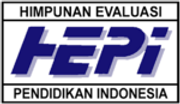Effectiveness of problem-based learning model in empowering creative thinking ability of elementary school students
Abstract
Keywords
Full Text:
PDFReferences
Amir, M. T. (2016). Inovasi Pendidikan Melalui Problem Based Learning (Bagaimana Pendidik Memberdayakan Pemelajar di Era Pengetahuan). Kencana.
Brandt, C. B., Cennamo, K., Douglas, S., Vernon, M., McGrath, M., & Reimer, Y. (2013). A theoretical framework for the studio as a learning environment. International Journal of Technology and Design Education, 23(2), 329–348. https://doi.org/10.1007/s10798-011-91815
Chan, Z. C. Y. (2013). Exploring creativity and critical thinking in traditional and innovative problem-based learning groups. Journal of Clinical Nursing, 22(15–16), 2298–2307. https://doi.org/10.1111/jocn.12186
Cheung, M. (2011). Creativity in advertising design education: An experimental study. Instructional Science, 39(6), 843–864. https://doi.org/10.1007/s11251-010-9157-y
Darmawan. (2010). enggunaan Pembelajaran Berbasis Masalah dalam Meningkatkan Kemampuan Berpikir Kritis Siswa Pada Pembelajaran IPS di MI Darrusaadah Pandeglang. Jurnal Penelitian Pendidikan, 11(2), 21–29. http://www.e-journal.hamzanmawadi.ac.id/index.php/cob/article/view/1133
Florida, R. (2014). The rise of the creative class. New York: Basic Books.
Galford, G., Hawkins, S., & Hertweck, M. (2015). Problem-based learning as a model for the interior design classroom: Bridging the skills divide between academia and practice. Interdisciplinary Journal of Problem-Based Learning, 9(2). https://doi.org/10.7771/1541-5015.152
Glender, M. E. (2011). Learning and Intruction. Kenca.
Gunawan, R. (2013). Pendidikan IPS. Alfabeta.
Hmelo-Silver, C. E., & Barrows, H. S. (2006). Goals and strategies of a problem-based learning facilitator. Interdisciplinary Journal of Problem-based Learning, 1(1), 21–39. https://doi.org/10.7771/1541-5015.1004
Khirusyifa, A. A., Ibrahim, M., & Widodo, W. (2017). Implementasi Kemampuan Berpikir Kreatif Dan Penguasaan Konsep Siswa Kelas V Sekolah Dasar. JRPD Jurnal Review Pendidikan Dasar, 3(1), 378–387.
Moleong, L. J. (2006). Qualitative Research Methods: Revised Edition. Bandung: PT Remaja Rosdakarya.
Mu’aini. (2016). Peningkatan kualitas pembelajaran ips melalui penerapan metode. 3(1), 44–62.
Nargundkar, S., Samaddar, S., & Mukhopadhyay, S. (2014). A guided problem-based learning (PBL) approach: Impact on critical thinking. Decision Sciences Journal of Innovative Education, 12(2), 91–108. https://doi.org/10.1111/dsji.12030
Piawa, C. Y. (2010). Building a test to assess creative and critical thinking simultaneously. Procedia - Social and Behavioral Sciences, 2(2), 551–559. https://doi.org/10.1016/j.sbspro.2010.03.062
Pithers, R. T., & Soden, R. (2000). Critical thinking in education: A review. Educational Research, 42(3), 237–249. https://doi.org/10.1080/001318800440579
Rasimin, R. (2020). Multikultural: Teori dan Aplikasi dalam Pendidikan IPS. Yogyakarta: totalmedia.
Rasimin, R. (2017). Implementasi Model Pembelajaran Multikultural Untuk Meningkatkan Kompetensi Mahasiswa (Studi Pada Mahasiswa PGMI di IAIN Salatiga). INFERENSI: Jurnal Penelitian Sosial Keagamaan, 11(1), 141-162.
Rasimin, R. (2016). Pengembangan Karakter Multikultural Mahasiswa dalam Pembelajaran Civic Education (Studi pada Mahasiswa Jurusan Kpi Fakultas Dakwah Iain Salatiga). INJECT (Interdisciplinary Journal of Communication), 1(2), 145-164.
Risvirenol. (2015). Pengaruh Strategi Pembelajaran Berbasis Masalah Terhadap Hasil Belajar Mahasiswa Yang Memiliki Gaya Kognitif Berbeda. Jurnal Sains Dan Teknologi Tadulako, 4(1), 80–91. https://jurnal.unta.ac.id/jurnal/index.php/JSTT/article/view/6932
Rojuli, S. (2016). Strategi Pembelajaran Pendidikan IPS. CV. Garuda Mas Sejahtera.
Sarsani, M. R. (2007). Students’ assessment of their teachers’ encouragement in the classroom for the promotion of creativity. Journal of Educational Psychology, 1(1), 47–60. Retrieved from https://eric.ed.gov/?id=EJ1066271
Siegler, R. S. (1989). How domain-general and domainspecific knowledge interact to produce strategy choices. Merrill-Palmer Quarterly, 35, 1–26.
Sukidjo, M. (2015). Peningkatan Hasil Belajar IPS dengan Model Pembejararan Berbasis Masalah, Media Stimulan Gambar. Jurnal Pendidikan IPS, 2(1), 30–41. http://journal.uny.ac.id/index.php/hsjpi/artikel/view/4601
Supardan. (2015). Pendidikan IPS. Bumi Aksara.
Torrance, E.P. 1974. Torrance Test of Creative Thinking: Norms-technical manual. Lexington, MA: Ginn.
Wiguna, F. A., & Damayanti, S. (2018). Pengaruh Model Pembelajaran Berbasis Masalah Terhadap Kemampuan Berpikir Pembelajaran IPS di SDN Ngadirejo Kota Kediri. JPDN Jurnal Pendidikan Dasar Nusantara, 3(2), 175–188. https://ojs.unpkediri.ac.id/index.php/pgsd/artikel/view/1178
Yoon, H., Woo, A. J., Treagust, D., & Chandrasegaran, A. L. (2014). The efficacy of problem-based learning in an analytical laboratory course for pre-service chemistry teachers. International Journal of Science Education, 36(1), 79–102. https://doi.org/10.1080/09500693.2012.727041
DOI: https://doi.org/10.18326/mdr.v13i1.74-90
Refbacks
- There are currently no refbacks.
Copyright (c) 2021 Rasimin Rasimin, Sukron Ma'mun

This work is licensed under a Creative Commons Attribution 4.0 International License.

This work is licensed under a Creative Commons Attribution 4.0 International License.
Program Studi Pendidikan Guru Madrasah Ibtidaiyah (PGMI)
Universitas Islam Negeri (UIN) Salatiga, Indonesia
Jl. Lingkar Salatiga Km. 2 Pulutan, Sidorejo, Kota Salatiga, Jawa Tengah 50716,
Telp. (0298) 323706 – Fax. (0298) 323433
Technical Support: jurnalmudarrisa@iainsalatiga.ac.id
P-ISSN: 2085-2061
E-ISSN: 2541-3457



